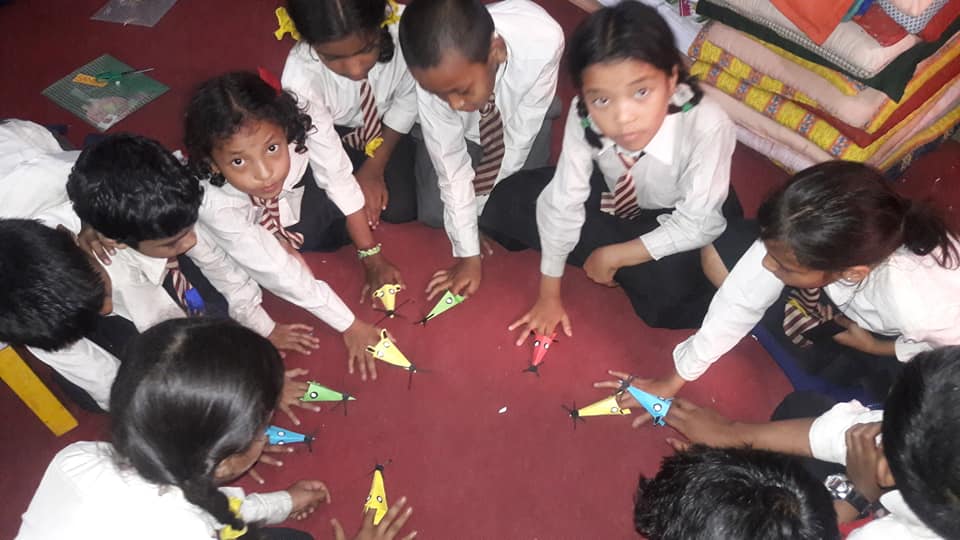

The educational institutions are responsible for producing skilled and quality human resources, which are expected to compete well in the national and international job markets and contribute to national image and economy.
Undoubtedly, the people having proper skills and quality education are important assets for national development. Once the quality is compromised, it has direct bearing on one’s personal, social and national status.
In Nepal, erosion of quality education at school and university, and urgency of political and institutional accountabilities to ensure academic excellence have been much talked and written for quite a while. Importantly, political meddling is often reported as a wallop to autonomy of educational institutions, thereby denting quality.
The debate on it has further flared in the wake of vacancy announcement for the Vice Chancellor of Tribhuvan University (TU). TU, oldest and largest academic institution in the country, is waiting for Vice Chancellor for almost two months after the expiry of the term of prior Dr Dharma Kant Banskota.
Interestingly, the vacancy announcement drew flak immediately, which finally prompted Prime Minister Pushpa Kamal Dahal ‘Prachanda’ to remind the Education Minister Ashok Rai to correct advertisement and issue it again. PM Dahal reminded that he was for a qualified individual from anywhere in the world to lead TU, the oldest institution of higher study in the country. He also underscored ‘open competition’.
Of course, the first call for Vice Chancellor had limited criteria which evidently barred broader competition among the diverse aspirants. The criterion had stated: A certified copy of at least three years’ experience (with clear mention of year, month, and day) for those holding positions within a university is required. This criterion was a clear bracketing and othering which drew flak drawing PM Dahal’s attention.
For now, it seems utmost interest and concern from the Head of the Government for placing qualified academic leader at TU which would bring changes and help ensure quality education. However, it is being observed from various sides whether government position would stand firm to uphold the image of the academic institution.
In this context, it is equally essential to be mindful that mere placement of a qualified person as Vice Chancellor at TU would not be sufficient to clear mess and backlogs. He/she needs utmost cooperation from all sides concerned to work effectively. The new VC’s team must be smooth and prompt.
In order for a Vice Chancellor to deliver well, the first need is obviously the independence in decision making. Clear absence of political meddling, together with cooperation from competent staffs are imperative for scientific planning and enforcement of programmes to help ensure quality education and conduct research.
It is not unfair to say that various departments and colleges are used to pick leaderships based on political leaning, while the militant presence of students’ unions is equally appalling. Many untoward incidents as smearing soot to university officials and gross misbehaviour to gurus were seen in the past.
It was quite indecent on the part of the student unions to corner the professors and department heads over the fee fixing row in the engineering campuses including at Pulchowk and Thapathali some months back. To the student unions’ undue pressure, the department chiefs even went on to announce ‘handing over department leaderships’ to the unions!
Similarly, stories of padlocking departments and university administrative offices for months are reported rife. Worryingly, not only student unions but also TU teachers join bandwagon of protests to cower leaderships in their petty interests. Isn’t it high time the party-affiliated professors’ groups, temporary teachers and students’ unions worked in unison to excel TU? The TU and the colleges under it must not be political playground.
At least for now, PM Dahal has vowed that there would not be ‘political bhagbanda’ anymore at TU leadership. The appointments at TU would be merit-based, he assured, during his address to the nation he made upon his one-year in office some weeks back. The PM was seconded by General Secretary of Nepali Congress, Gagan Kumar Thapa, who spoke live admitting that there was political interference in the university. So, it is test not only of the government but also of the ruling partners including Nepali Congress on how true they are to their words.
Once TU leadership is equipped with competence and quality, it would at least inspire other institutions to follow suit. Nepal’s academic institutions are undergoing severe trust deficit, which is already a bad omen.
Trust deficit in academic institution is a force multiplier because it creates and amplifies negative perspectives toward other sectors too. The academic institutions must therefore be centres of attraction and excellence. For it to happen, utmost need is indeed a political cooperation not political interference.